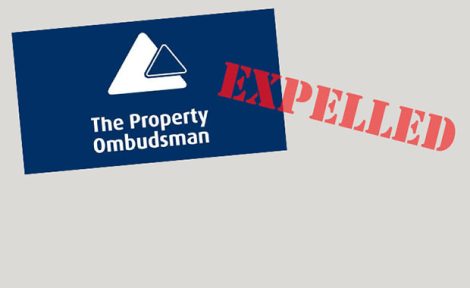The list
The Property Ombudsman, Rebecca Marsh considers a litany of complaints against a managing agent by the leaseholder. Who’d manage a new-build?!
 The agent was instructed by the management company to provide a management service in respect of the communal areas of the new-build estate. As managing agent, their primary role was to facilitate communication between leaseholders, the management company and the developer, and to act in accordance with the instructions of their client by arranging for works to be carried out.
The agent was instructed by the management company to provide a management service in respect of the communal areas of the new-build estate. As managing agent, their primary role was to facilitate communication between leaseholders, the management company and the developer, and to act in accordance with the instructions of their client by arranging for works to be carried out.
There were numerous complaints made by the leaseholder, which is not uncommon in leasehold related cases on new build developments.
Investigation
Window cleaning – the leaseholder complained that residents were not informed that window cleaners would be visiting. TPO had sight of a letter addressed to residents informing them of window cleaning which was dated two days prior to the job being carried out, leaving little or no time for leaseholders to be aware in advance of the proposed works.
Access codes – the leaseholder stated that the agent changed the access codes to the building without informing residents. The agent said they did tell residents, but there were no records in their files to evidence they had done so.

Cycle store – the leaseholder observed that some residents did not have access to the cycle store. When the subsequent complaint was raised the agent advised that residents would have to pay for an upgrade to access the cycle store. The leaseholder replied pointing out that the agent should have taken up the matter with the developer before responding. The agent subsequently did so and, after negotiations, the developer agreed to provide extra tokens to allow all residents to access the cycle store.
Maintenance of green spaces – the leaseholder argued that the agent had failed to maintain communal green spaces, increasing costs because of the unnecessary and avoidable replacement of plants. The agent responded stating the plants were already dead when they took over the management but added that the management company had put a new green space strategy in place which would address the issue going forward.
CCTV storage – the leaseholder complained that the CCTV storage system was not compliant with the security standard that had been promised by the developer. The agent replied saying this was an issue that the developer was responsible for but provided no evidence to indicate that they had communicated the issue to them.
Security vulnerabilities – the leaseholder raised a security issue which he felt had led to a break-in where his motorcycle was stolen. There was evidence of communication between the leaseholder and the developer where the developer had denied any problems with security. However, this proved to be incorrect, as there was a report concerning the security and the changes that needed to be made to address identified vulnerabilities at the site. Despite being aware, there was no evidence to show that the agent had assisted with the issue.
Evidence criminal activity – the leaseholder was concerned that the agent had failed to ensure that CCTV footage of the break-in was preserved which meant the police were unable to investigate the incident. He had previously asked the agent to keep the footage for two weeks, but it appeared that they had not taken steps to preserve it from automatically being deleted. Without sight of the footage, it was therefore impossible to conclude that the leaseholder was caused financial loss as the police were not provided with the recording.
Flooding clean-up – the leaseholder complained that following a flood outside his flat the agent failed to ensure the area was adequately cleaned. Evidence provided indicated that contractors attended the site immediately following the leak and pulled up carpets, but they did not realise the extent of the damage at this time. Upon the extent of the issue being revealed, the agent arranged for the contractors to return with dehumidifiers to resolve the matter.
Complaints handling – the leaseholder complained about the agent’s handling of his complaints stating that they were not investigated appropriately and that some issues were simply ignored. The evidence provided indicated on occasion it had taken the agent two months to respond and that it was not always the case that all of the issues were responded to, adding to the sense of frustration the leaseholder felt.
Outcome
Overall, whilst the agent demonstrated some shortcomings in their service, their overall communication was such that it had left the leaseholder feeling unheard and increasingly frustrated. This resulted in the leaseholder adding to and escalating his complaints most of which could have been resolved by the agent had they taken a proactive approach to their communication. As such, the Ombudsman supported a number of aspects of the complaint and awarded £350 in compensation to reflect avoidable aggravation, distress and inconvenience the agent’s shortcomings had caused. Most complaints could have been resolved by the agent taking a pro-active approach.





